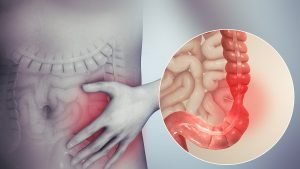IBS
What is IBS?
IBS is defined as recurrent symptoms of abdominal pain and changes in stool consistency.
Some people with IBS will experience diarrhea while others may have constipation. Sometimes individuals experience both diarrhea and Constipation.
Some foods may trigger a flareup of these symptoms however IBS is not thought to be caused by food intolerance.

Symptoms
Common symptoms of IBS can include abdominal bloating/distension, excessive wind, frequency and/or urgency, incomplete evacuation & nausea. These symptoms are mildly irritating for others they are debilitating and can last anywhere from hours to days or even weeks.
It’s not just in your head these symptoms are real and are often hard to live with.
Some people often describe symptoms outside of the gastrointestinal tract such as fatigue, sleep disturbances, foggy headedness, poor concentration, irritability, or even anxiety and depression.
IBS can affect many areas of your overall health and well being that’s why it’s so important to find a management system that works for you.

What Happens?
Gastrointestinal sensitivity – an increase in sensitivity within inner organs with a feeling of discomfort from pain, bloating & wind is normally more noticeable in people who have gastrointestinal intestinal sensitivity.
Altered intestinal motility, a term which is used to describe the transit of food and waste products, coordinates movements of the stomach and intestines to propel intestinal contents along the gastrointestinal tract.
Changes in the gut microbiota, the population of microorganisms that keep your gut healthy and functioning, can be affected by medication use, diet and even changes to your mental state can influence this bacteria.
Altered gut brain interactions, where the feelings of stress and anxiety can impact the normal functioning of the gut brain connection, can result in gastrointestinal problems.
Regardless of the triggering factors of IBS and despite the relentless discomfort people are often surprised to learn there is no major abnormality in the structure of their gut.
When looked at under a microscope all parts of a gut with IBS look relatively normal, the symptoms experienced with IBS is thought to be in the functioning of the gut, the way it works.

Stress
Stress is essentially the feeling of emotional or physical tension as it relates to our ability to deal with internal and external demands.
External demands include stresses within the physical environment like our jobs, relationship challenges, difficulties your home & any particular expectations we deal with on a daily basis.
Internal demands determine our body’s ability to respond to and deal with external stress including demands.
When the brain sees an external stress it naturally wants to resolve it. The sympathetic nervous system is one of the two main divisions of the autonomic nervous system. The fight or flight response is meant to protect us from imminent danger to give us a burst of energy so we can run or fight from whatever threat. However the chronic activation of the fight or flight response can result in symptoms of Constipation or diarrhea.
The sensitivity of the gut also increases making us all the more aware of how our gut is functioning. When this happens we can experience symptoms of nausea, acid reflux, abdominal pain, excess wind, and bloating all. Stress doesn’t just affect our mind or give us the jitters, it alters the physiological functioning of our gut.

Stress & IBS
Stress is a well known IBS trigger. Normal stress is natural and can be helpful. The mind identifies a stressful event like hearing a car backfire and it jumps into action where our brain activates the sympathetic nervous system kicking off our body’s fight or flight response.
As soon as the noise hits our ears, within seconds our body needs to be ready to run or fight. While our legs might be charged for running the energy has to come from somewhere and that is the digestive system.
During the fight or flight response, blood is diverted to where it’s needed most such as the muscles and your extremities.
To do this the body has to reduce blood flow to the gut and alter the movement of food and waste products through the digestive tract.
Stress about IBS can lead to more stress thus leading to more symptoms. While the sympathetic nervous system prepares the body for the fight or flight response, the parasympathetic nervous system does the opposite and it returns the body and digestive system to a functioning state of calm.
The Nervous System
The sympathetic system is our body’s fight or flight response.
The parasympathetic system is our normal body functions of rest and digest.
The enteric nervous system is our GI tract.
The sympathetic nervous system has actions of;
- Rapid heart rate
- Increased blood pressure
- Agitation
- Sweating
- Rapid & shallow breathing
- Muscle rigidity
- Reduced GI activity
The parasympathetic nervous system has actions of;
- Regular heart rate
- Normal blood pressure
- Muscles relaxed
- Regular breathing rate
- Normal GI activity
You can learn how to trigger your parasympathetic system through the vagus nerve, which was discovered by Nobel Prize winner Otto Loewi in 1921. Stimulation of the vagus nerve can release a neurotransmitter called acetylcholine which can lower our heart rate and calm our stress response.
How does Stress Occur?
Stress can happen quickly and build up slowly overtime. We might suddenly start feeling stressed about something where our heart will beat faster or we start sweating. This stress usually disappears quickly after the event concludes.
However, for long term stress, things are different. This kind of stress comes on really slowly, and can gradually build up overtime due to ongoing pressures in your life or health concerns. Long term stress causes a hypersensitised stress response making it more difficult for our body to relax.
When we look at the stress symptom cycle it is important to understand; the gut and brain are interconnected – stress can cause gut symptoms and gut symptoms can also cause stress. It’s very common for people with IBS to become stressed about their condition during and after a flare. One very important thing to remember; this stress can lead to more symptoms and more flare ups until suddenly you’re stuck in the stress symptom cycle Without having been stressed in the first place. No matter where you enter the stress cycle symptom you actually end up in exactly the same place your sympathetic nervous system is activated and you’re symptomatic.
So how do you get out the best way to stop the cycle is to cut off its powerhouse the sympathetic nervous system? Focus on the solution, break the cycle by reducing the sympathetic nervous system’s control and activating the power sympathetic nervous system. Learning to activate the parasympathetic nervous system is a powerful tool within the stress symptoms cycle.
What Can You Do?
Diaphragmatic breathing has been used for centuries and is an excellent way to relax and activate your parasympathetic nervous system. The diaphragm is the large muscle at the base of our lungs which separates the chest cavity from our abdomen. It contracts and flattens to provide space for the lungs to fill and it relaxes when you breathe out to empty our lungs. This type of breathing is sometimes nose known as belly breathing, meaning you fully engage your diaphragm, stomach, and abdominal muscles as you breathe.
Even though we use diaphragmatic breathing when we’re born, many of us naturally get in the habit of shallow chest breathing as we age. Diaphragmatic breathing not only fills our lungs but it slows our heart rate it lowers or stabilizes blood pressure and it activates our vagus nerve to trigger our parasympathetic nervous system it has also been shown to improve gut motility and improved pain perception.
Don’t Forget To:
- Seek support
- Be informed
- Be educated
- Don’t give up – remember this saying when seeking help from professionals … “There is a doctor for every patient, and a patient for every doctor”. Healthcare, unfortunately, is no different to life, as we seek friendships of those who think and believe like us, the same is reflected in our healthcare as well. Every person knows their body, you are the best informed of what is happening for you.
Conclusion
Balance and support your digestive & nervous systems to promote gut & brain health.
If you have any questions, concerns or would just like further information about how your hormones can affect your overall wellbeing, don’t hesitate to reach out and get in touch with us here at Health 4U. Or you can book an appointment with Sinéad through our online booking platform, and together we will help you understand and take control of your health gut & brain health
Share this article …
Share on facebook
Facebook
Share on twitter
Twitter
Share on linkedin
Linkedin
Share on email
Email
Share on whatsapp
Whatsapp


